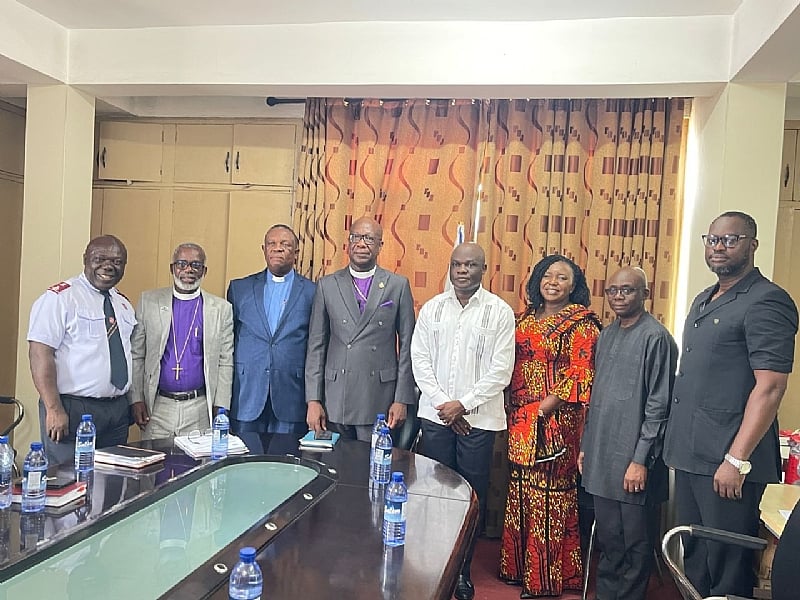The Ghanaian government, spearheaded by the Minister of Local Government, Chieftaincy and Religious Affairs, Mr. Ahmed Ibrahim, is poised to reinstate National Sanitation Day on May 3, 2025. This initiative aims to tackle the pervasive sanitation challenges plaguing the nation, including a recent cholera outbreak that has claimed dozens of lives and affected hundreds across numerous districts. The minister underscored the urgency of the situation during visits to prominent Christian organizations, seeking their collaboration in disseminating information and mobilizing public participation. Churches will play a crucial role by informing their congregations during the Easter weekend about the importance of the sanitation drive and the individual responsibility every citizen bears in maintaining a clean environment. The government’s message emphasizes that addressing poor sanitation is a collective national duty, requiring unified action from all segments of society.
The National Sanitation Day will involve a temporary suspension of commercial activities from early morning until 10:00 am on May 3rd. Shops will be closed and citizens are expected to refrain from their regular work to dedicate this time to cleaning their surroundings and participating in community-wide sanitation efforts. This signifies the government’s commitment to prioritizing sanitation and making it a national concern. The initiative is not merely a one-day event, but rather a springboard for sustained efforts towards improving sanitation and waste management practices across the country. The long-term goal is to instill a culture of cleanliness and responsibility towards environmental hygiene among all Ghanaians. This proactive approach is crucial in preventing future outbreaks of diseases like cholera and creating a healthier environment for all citizens.
A key aspect of the sanitation drive is addressing the detrimental effects of human activities on the environment. The minister highlighted the alarming issue of plastic waste accumulating in waterways, impacting fishermen’s livelihoods and polluting the ecosystem. While a complete ban on plastics is not currently feasible, the government is promoting recycling as a primary strategy. Existing recycling plants will be leveraged, and public awareness campaigns will focus on educating citizens about the benefits of waste segregation and recycling. This approach aims to create a circular economy for plastic waste, reducing its environmental impact and potentially creating new economic opportunities.
The nationwide clean-up efforts will involve partnerships with environmental service providers who will play a crucial role in desilting gutters and collecting the amassed waste. This collaborative effort between government, private sector, and citizenry is vital for the success of the initiative. Furthermore, the government will engage with traditional authorities, religious institutions, and local communities to garner support and ensure broad participation. This inclusive approach recognizes the influence of these institutions in mobilizing communities and fostering a sense of ownership over sanitation efforts. By involving all stakeholders, the government aims to create a sustainable and impactful sanitation movement.
The response from religious leaders has been overwhelmingly positive, with Right Reverend Dr. Hilliard Dogbe, Chairman of the Christian Council of Ghana, pledging the Council’s full commitment to the initiative. Dr. Dogbe emphasized the moral and spiritual obligation of Christians to care for the environment, aligning with the government’s message of shared responsibility. He viewed environmental stewardship as an integral part of ethical leadership, highlighting the interconnectedness of faith, civic duty, and environmental protection. This strong support from religious leaders will be instrumental in mobilizing their congregations and reinforcing the importance of the sanitation drive. Their involvement underscores the collective effort required to address the nation’s sanitation challenges effectively.
Beyond the immediate clean-up, the government’s long-term strategy focuses on fostering a sustained shift in public attitudes and behavior towards sanitation. This involves promoting education and awareness campaigns to instill a sense of individual responsibility and community ownership over maintaining a clean environment. The partnership with religious and traditional leaders will further amplify this message, leveraging their influence to create a culture of cleanliness and environmental stewardship. The government’s commitment to long-term change demonstrates a comprehensive approach to addressing sanitation challenges, going beyond short-term solutions to build a sustainable and healthier future for Ghana. By working together, the nation aims to create a cleaner, healthier, and more sustainable environment for all its citizens.














